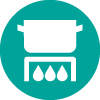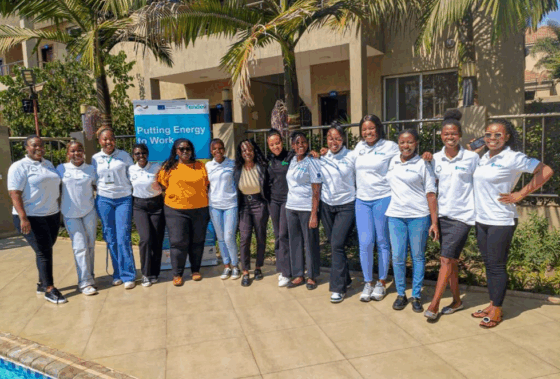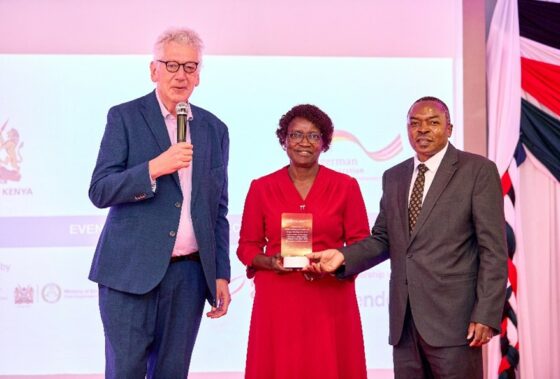Global Push for Clean Cooking: EnDev Turns Calls Into Action
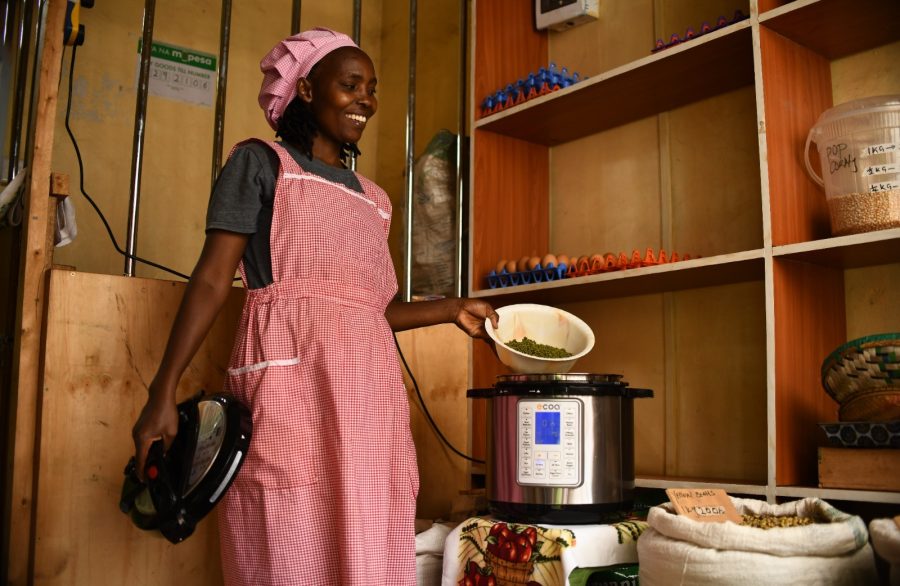
Clean cooking has become a central focus in global energy access and sustainability efforts in 2024, with recent international events highlighting its importance. At COP29 numerous side events called for urgent action to achieve universal access, including the AU/AFREC event promoting the programme “Meeting the Clean Cooking Challenge in Africa.” The G20 Summit reinforced this with the G20 Rio de Janeiro Leaders’ Declaration, committing to accelerate access by 2030 through the Clean Cooking Roadmap. Another highlight was the Summit on Clean Cooking in Africa, hosted by the IEA, which concluded with the Clean Cooking Declaration and the mobilisation of USD 2.2 billion. All these developments underscore the urgent need to move away from traditional cooking methods, take decisive action, and join forces to secure the necessary public and private funding of USD 5 billion annually.
Clean cooking is now recognised as essential for achieving Sustainable Development Goal 7 (SDG7) and advancing climate targets. At COP29, the African Energy Commission (AFREC) emphasised the severe impacts of traditional cooking solutions, which costs the continent USD 791.4 billion annually in health, economic, and environmental damages.
Drawing on 20 years of experience, EnDev is implementing effective solutions to make clean cooking accessible to millions of people around the world. Verena Brinkmann, EnDev’s clean cooking expert, explains, “Clean cooking is a precondition for sustainable development, delivering direct benefits for the environment, climate change, local economic development, gender transformation and last but not least health. However, without rapid, determined and aligned action, only 79% of the global population will have access to clean cooking fuels and technologies by 2030.”
Supporting Global Goals Through Local Action
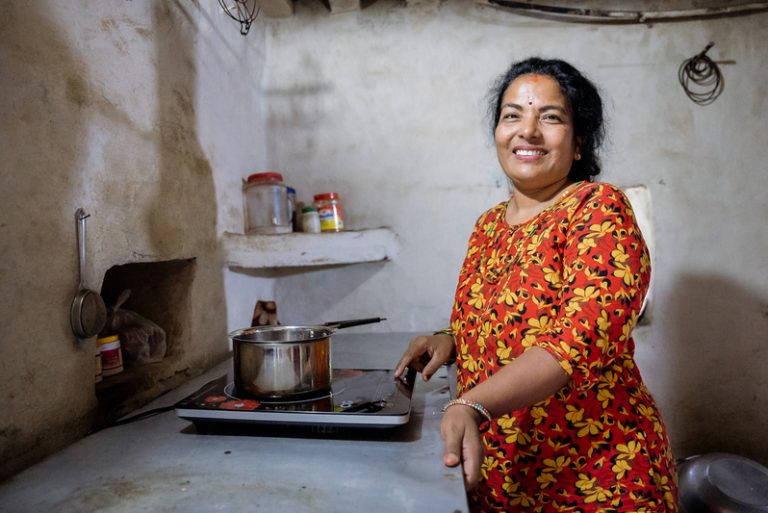
To accelerate access to modern cooking energy, EnDev builds on local market development.
EnDev focuses on engaging local entrepreneurs and leveraging innovative financing models, such as Results-based Financing (RBF) and carbon credits. Further, EnDev engages local NGOs or community-based organisations to create awareness and create or boost demand. This strategy not only makes clean cooking accessible but also stimulates local economies. To enhances sustainability, EnDev supports national entities to create an enabling environment, referring to national policies, standards, and coordination.
Examples of EnDev’s Work in Clean Cooking
- Climbing the Energy Ladder in Kenya: EnDev has been instrumental in improving the quality of energy access in the cooking sector. Initially, the programme focused on market development and providing access to improved cookstoves (ICS). This expanded into the GCF co-financed project, “Promotion of Climate-Friendly Cooking: Kenya and Senegal.” Today, EnDev is scaling up access to higher-tier cooking solutions, including electric and ethanol stoves, and supports the implementation of the Kenya National Cooking Transition Strategy, which includes an eCooking Strategy.
- Carbon Finance: In 2023, 600,000 solar and clean cooking products were sold with the financial support form the sale of carbon credits. Carbon projects that monetise emission reductions from energy access activities have been put in place by EnDev implementers in several countries across Africa, such as Madagascar, and in South East Asia, including Cambodia, Laos, Nepal, and Vietnam. By tapping into the carbon markets, EnDev unlocks additional private funding to reduce appliance costs for consumers or subsidise local production and distribution.
- Clean Cooking in Schools in Benin: After a successful pilot at one vocational school, the local ICS company used EnDev’s RBF incentives to expand its distribution networks to all schools in the region. As a result, firewood usage dropped by 80% — from 5.5 tonnes to just 1.1 tonnes per month — leading to significant cost savings. This enabled the schools to reallocate funds to other critical needs.
Partnerships Drive Long-Term Change
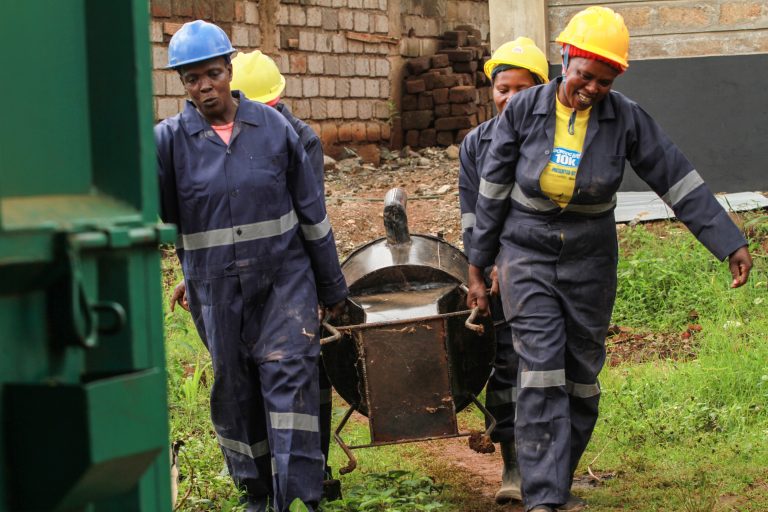
EnDev’s strategy relies on strong partnerships to ensure lasting impact. “Our goal is to make clean cooking solutions scalable and sustainable,” says Brinkmann, emphasising the importance of collaboration with partner governments, local and international NGOs, and private sector partners. “By involving local stakeholders from the beginning and creating incentives for market development, we ensure these projects remain effective and sustainable.”
Furthermore, EnDev is committed to creating partnerships that extend beyond the project lifespan. For instance, EnDev is implementing a Demand-Side Subsidy (DSS) component and collaborating with organisations such as the World Bank and the End-User Subsidy Lab to scale up successful approaches after EnDev’s involvement.
A dynamic example of partnership, delivering coordinated solutions and offering flexible advisory to members and partners, is the Global electric Cooking Coalition (GeCCo). Founded by EnDev, SEforALL, MECS, and GEAPP, GeCCo has grown to include a diverse group of eCooking advocates who collaborate with global and national initiatives to drive the shift toward electric cooking. GeCCo’s primary goal is to facilitate the transition to eCooking in at least 10 countries across Sub-Saharan Africa, Asia, Latin America and the Caribbean by 2030.
EnDev’s commitment to clean cooking goes beyond technology; it’s about building resilient communities and sustainable markets that can thrive independently. The global momentum around clean cooking provides a unique opportunity to make significant progress toward the 2030 goal of universal access to clean cooking.
EnDev’s Clean Cooking Impact: Focus on Africa
More information
